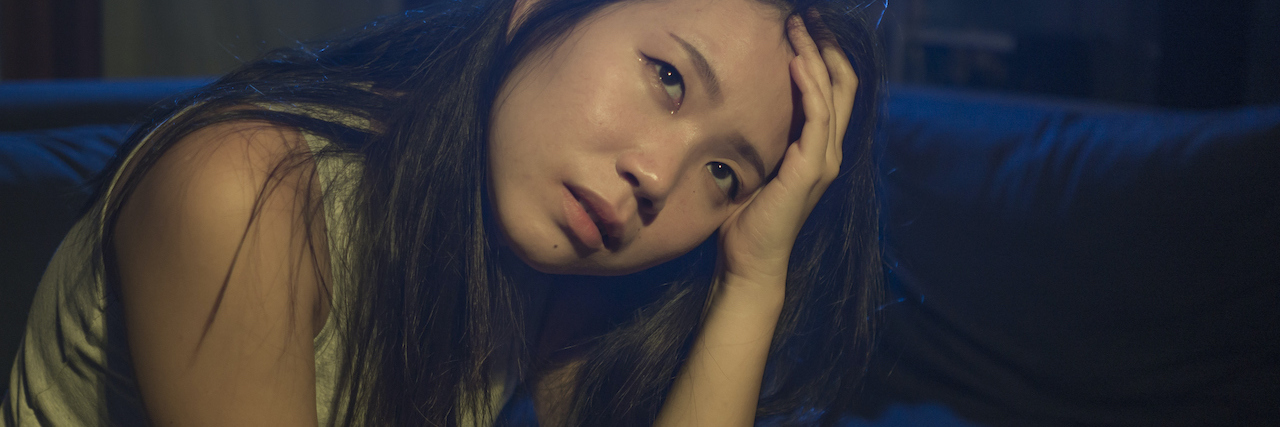We Can't Ignore the Recent Attacks on the Asian American Community
“These could be my parents, my grandparents, my relatives,” I think as I watch the horrendous videos of members of the Asian American Pacific Islander (AAPI) community being singled out and targeted in brutal attacks across the country.
After one recent attacker targeted a 91-year-old man, and allegedly two other elderly Asian Americans in the same area, actors Daniel Wu and Daniel Dae Kim are offering reward money for anyone who can help identify the suspect. A segment on MSNBC pointed out this attack was not an isolated incident, but part of a larger surge in hate crimes against Asian Americans since the start of COVID-19.
When I first heard of these attacks, I was in disbelief. I sometimes put the United States on a pedestal. I immigrated here from a communist country as a young girl, escaping the violence and control of a country that my parents deemed unfit to raise their daughter in. I see the United States as this country that is accepting of everyone, that opened their arms to accept me at a time where I had no place to go. I think what makes all these attacks harder to grasp is that it happened in the area where I grew up, the San Francisco Bay Area. I’ve always regarded the Bay Area as my home base, a place where I could return to no matter where life took me. It was my safe haven, where I could step onto the softball field as the only Asian competitor and know that I would not be targeted or singled out.
With the increase in attacks on the AAPI community, I have a hard time consolidating the two realities that I am experiencing. On the one hand, I want to hold onto the image of acceptance and tolerance that I grew up with. Yet, on the other hand, I live with the reality that I may be targeted simply because the color of my skin. Since the pandemic started, I have been spat at, told to return to my home country and blamed by people in public for bringing the virus over to the United States. While I am familiar with the language and culture, while I am able to defend myself, the elderly population cannot.
The violence towards the most vulnerable members of our population are uncalled for. They instill fear in the rest of the AAPI community and keep us from being able to live our lives to the fullest. I see in these elderly my own grandparents, whom at one time were able to visit the United States and not have any fear for their lives. My grandparents, on several occasions, have lived with my family for months at a time, taking care of me and venturing out into the community I called home. My grandparents felt safe interacting with fellow elderly members of our community, talking with them in their native tongue and exchanging stories of their grandchildren. Part of me is glad that my grandparents are not in the States right now; I would fear for their safety if they were to go out in public to even do something as simple as take a walk. Who would protect them? Who would defend them?
In addition to the violence pulling at my heart strings, the violence causes fear within me. What will happen if I go out to the grocery store? What will happen to me if I go out into my community to do something as simple as laundry? My anxiety peaks every time I need to go out and I often feel like I must bring a friend with me to keep me safe. The lack of safety creates unnecessary amounts of anxiety for me when I already worry about the little things in daily life. Not only does the violence create increased anxiety, it heightens my sense of isolation as I want to avoid all things that need to be done to live every day. I want to avoid all my chores and daily tasks for fear of being targeted or hurt. This has weighed heavily on me as the isolation from the outside world has triggered my depression even more, making me doubt if I belong in the world and questioning whether or not I even have a place in this world that I live in.
There is much that needs to be done to heal the AAPI community. We are a unique blend of individuals from many cultures, all chasing the American dream. We hold within our families the stories of our past struggle and how we have overcome struggle to get to where we are. What story are we telling our children through these attacks?
It is hard to sit back and watch these targeted attacks on the AAPI elderly community without feeling a deep-rooted connection to the families suffering these tragedies. It is hard to not see yourself through their lens. The AAPI community is a tight knit circle of mothers, fathers, daughters, sons, aunts, uncles, grandparents, and cousins. When one hurts, we all hurt.
Getty image via Marcos Calvo

